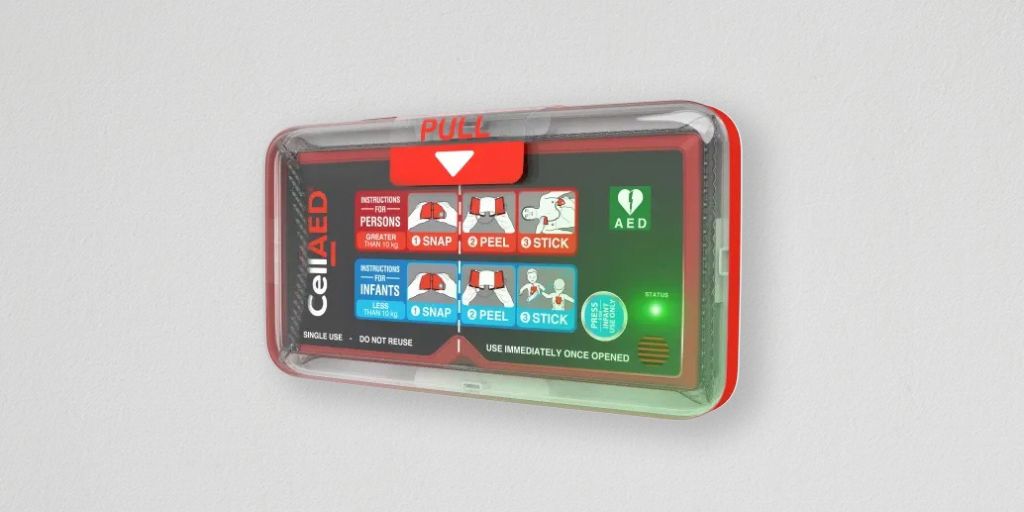
When someone collapses in cardiac arrest, early recognition and prompt commencement of CPR combined with access to rapid defibrillation, provides the greatest opportunity for a positive outcome.
A defibrillator is most effective when used within the first minute of someone collapsing from a cardiac arrest caused by a fatal cardiac arrythmia. If used within this timeframe, the survival rate can be as high as 90%. As the Resuscitation Council UK says “anyone can save a life” by using early CPR and a defibrillator.
However, every minute that goes by without CPR and access to a defibrillator reduces a person’s survival from cardiac arrest by 10%. A recent medical study, published by the Guardian, reports that the average walking time to retrieve a Public Access AED (Automated External Defibrillator) in the UK is approximately 19 minutes.
“When we talk about defibrillation we must also talk about good, effective CPR; the two work hand-in-glove with each other. Early recognition and commencement of CPR, combined with easy access and early defibrillation; provides the greatest opportunity for a positive outcome for individuals suffering sudden collapse from cardiac arrest,” said Tracey Cammish, Patient Safety and Clinical Intelligence Lead, NHS Supply Chain.
A handheld portable defib
NHS Supply Chain has recently launched a new innovative personal defibrillator onto its External Defibrillation Devices and Related Services and Accessories framework. CellAED® is a world-first handheld, smart, personal defibrillator designed with speed and ease of use in mind. This lightweight, small, handheld device can be carried easily and used within seconds of an individual taking ill.
The CellAED® has clear simple step by step instructions to coach people to provide CPR and provides a small electrical shock to the heart to start it beating normally again. With a personal defib, you can ensure there is always an AED nearby to help save a life when sudden cardiac arrest happens.
Clinicians who have seen the handheld AED are very enthusiastic about the difference it could make. From anaesthetist assistants to GP Practice nurses and community nurses; they have all said that thanks to its small size they would carry one in their emergency bag so it’s close at hand.
“Following recent clinical feedback, it was really great to see the scope of areas this product would benefit – from hospital at home to the Ministry of Defence, emerging technology and innovation can really tackle problems the NHS can face,” said Fay Allen, RGN Innovation Specialist, NHS Supply Chain.
World-first handheld defibrillator could revolutionise access and save lives » NHS Supply Chain











